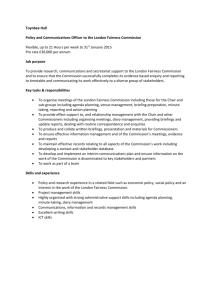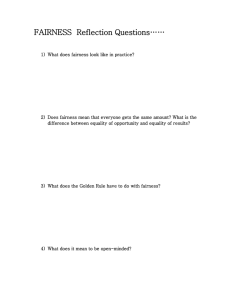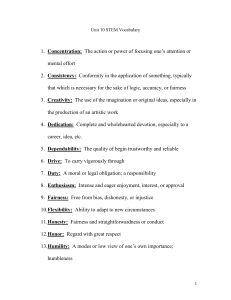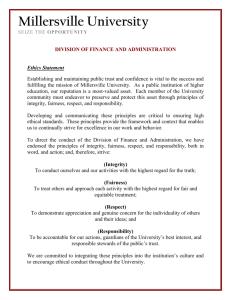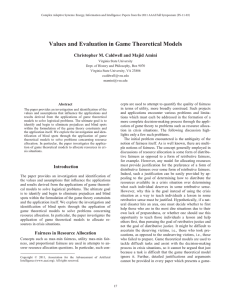Trade-Off between Efficiency and Fairness
advertisement
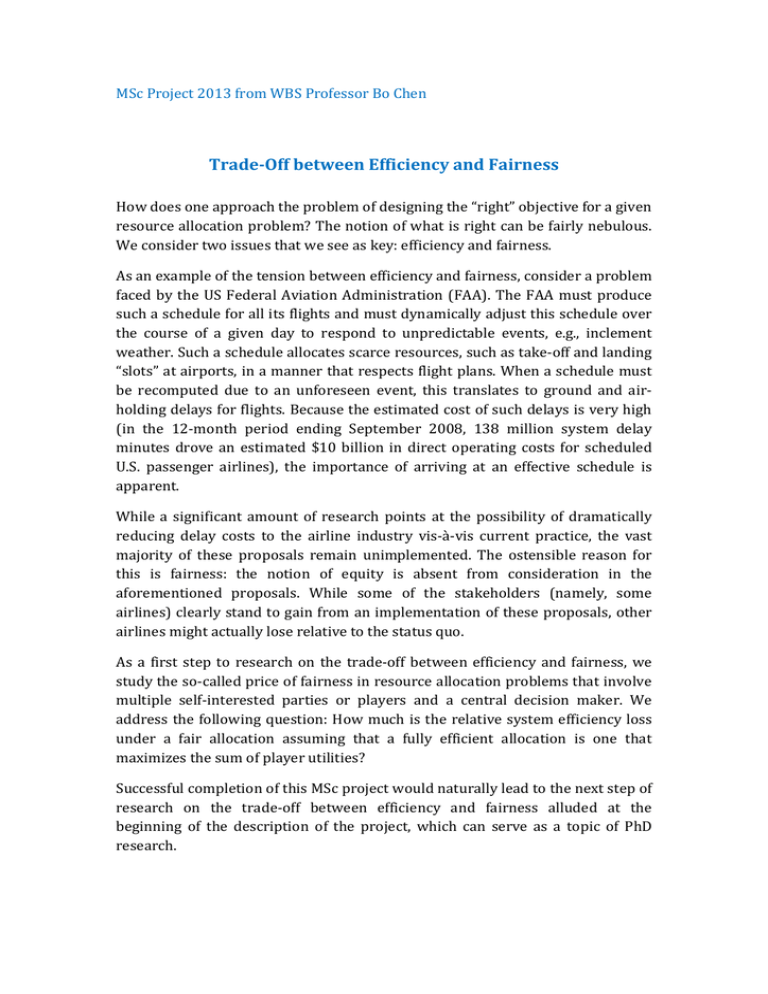
MSc Project 2013 from WBS Professor Bo Chen Trade-Off between Efficiency and Fairness How does one approach the problem of designing the “right” objective for a given resource allocation problem? The notion of what is right can be fairly nebulous. We consider two issues that we see as key: efficiency and fairness. As an example of the tension between efficiency and fairness, consider a problem faced by the US Federal Aviation Administration (FAA). The FAA must produce such a schedule for all its flights and must dynamically adjust this schedule over the course of a given day to respond to unpredictable events, e.g., inclement weather. Such a schedule allocates scarce resources, such as take-off and landing “slots” at airports, in a manner that respects flight plans. When a schedule must be recomputed due to an unforeseen event, this translates to ground and airholding delays for flights. Because the estimated cost of such delays is very high (in the 12-month period ending September 2008, 138 million system delay minutes drove an estimated $10 billion in direct operating costs for scheduled U.S. passenger airlines), the importance of arriving at an effective schedule is apparent. While a significant amount of research points at the possibility of dramatically reducing delay costs to the airline industry vis-à-vis current practice, the vast majority of these proposals remain unimplemented. The ostensible reason for this is fairness: the notion of equity is absent from consideration in the aforementioned proposals. While some of the stakeholders (namely, some airlines) clearly stand to gain from an implementation of these proposals, other airlines might actually lose relative to the status quo. As a first step to research on the trade-off between efficiency and fairness, we study the so-called price of fairness in resource allocation problems that involve multiple self-interested parties or players and a central decision maker. We address the following question: How much is the relative system efficiency loss under a fair allocation assuming that a fully efficient allocation is one that maximizes the sum of player utilities? Successful completion of this MSc project would naturally lead to the next step of research on the trade-off between efficiency and fairness alluded at the beginning of the description of the project, which can serve as a topic of PhD research.
